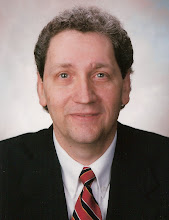First of all, they love to think. Certainly not all of them do - they can march in mental lockstep with their own tribe like anyone else - but many of them love the cerebral pursuits, the intellectual life. They respect the power of reason and want to use it to free people from mythology and superstition.
Second, they don't like hand-me-down answers (at least many of them don't). They hear traditional societal arguments for this or that proposition, but prefer to try thinking for themselves. (I know I'm really generalizing, but stereotypes have a ring of truth.)
And another thing - atheists hate religious hypocrisy. Many of them seem to have been injured by religious bigots, so they leave traditional dogma and look for another answer. Admitting that God exists seems tantamount to agreeing that the hypocrites are right.
Atheists also seem sensitive to the evil in this world. They know that something isn't right with the universe, that the scheme of things has short-circuited. They tend to blame evil solely on human foolishness, which, as they see it, is supported and encouraged by religion.
While I certainly don't pretend to speak for their collective cause, I see a lot to like in many atheists.
That's because they want to pursue a robust mental life. And that pursuit has paid unexpected dividends for many of them.
Like C.S. Lewis, a well-known novelist and literature professor at both Oxford and Cambridge, who professed atheism by the age of 15. He later became a Christian after long conversations with colleagues J.R.R. Tolkein and Hugo Dyson, and after much reading and study. Lewis once said, "A young man who wishes to remain a sound atheist cannot be too careful of his reading."
Or like Dr. Anthony G. N. Flew, eminent philosopher and former professor of the philosophy of religion at several universities, including Oxford and Aberdeen. Flew has been a figurehead in atheism for decades, but now professes to believe in God. He has not accepted Christianity, but believes that God created this universe.

Dr. Flew bases his conversion to theism on scientific evidence (especially new discoveries in DNA research). He has commented, “It now seems to me that the findings of more than fifty years of DNA research have provided materials for a new and enormously powerful argument to design.” He says he "had to go where the evidence leads".
Or like Lee Strobel, an atheist who worked as both a lawyer and investigative journalist for 14 years at the Chicago Tribune; he later converted to Christianity after a two-year study of the evidence for Christ's claims to be the Messiah. (Check out his website for an exclusive interview with Dr. Anthony Flew.)
So, I find some things I really like about atheists - especially the kind who aren't afraid to leave the tribe and search, on their own, for real answers... the kind with real intellectual courage.
But I love atheists for another reason. Because Jesus does.
"While we were still sinners, Christ died for us." -Romans 5:8 NIV




